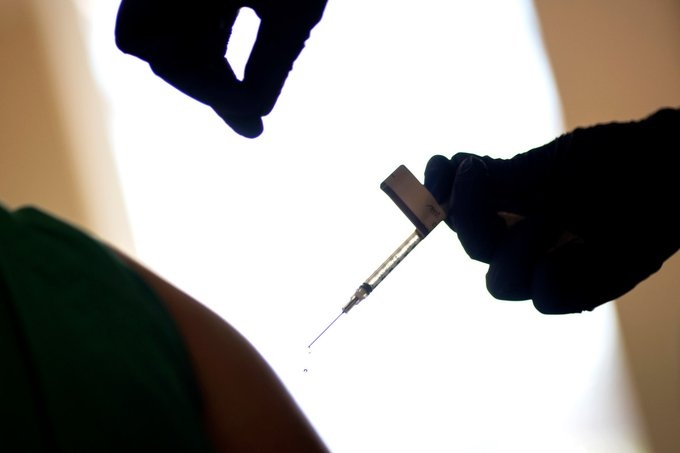In Norway, at least 23 people who received the first shots of the Pfizer-BioNTech COVID-19 vaccine, have died with 13 of them possibly linked to the jab's side-effects, said authorities on Thursday, January 14.
But after this unexpected incident, Chinese health experts called for suspending mRNA-based vaccine use, especially for elderly people. Meanwhile, Norwegian authorities pointed out that the vaccinations could be too risky for the very old and terminally ill people.
According to the Norwegian Medicines Agency (NMA), out of 23, 13 people—aged above 80—have so far been autopsied. The results of their post-mortem suggested that common side effects of the Pfizer-BioNTech vaccine, such as fever and nausea, might have led to the death of some elderly patients.

"For those with the most severe frailty, even relatively mild vaccine side effects can have serious consequences. For those who have a very short remaining life span anyway, the benefit of the vaccine may be marginal or irrelevant," said the Norwegian Institute of Public Health.
NMA's medical director, Steinar Madsen, said that along with 13 deaths, nine cases of serious side-effects and seven cases of less serious side effects were found.
Pfizer-BioNTech Vaccine
Norway, which reported more than 57,000 COVID-19 cases as of Friday, January 15, began the vaccination program in December, soon after the Pfizer-BioNTech jab was temporarily approved by the European Medicine Agency (EMA). As of now, almost 33,000 people have received one dose of the vaccine in the European country. Most of the shots given are from Pfizer-BioNTech with the Moderna vaccine now also been given to residents.
However, after the deaths of the vaccine receivers, a Chinese immunologist said that the mRNA vaccine was developed in a hurry and had never been used on a large scale against infectious disease, reported Chinese state-run news outlet Global Times. The expert also said that the safety of such vaccines had not been confirmed for large scale use in humans.
Even though mRNA vaccines are being developed using new technology, as per experts, these are effective against infectious diseases. The Centers for Disease Control and Prevention (CDC) in the US said that while other vaccines put a weakened or inactivated germ into our bodies to trigger the immune system, mRNA vaccines teach our cells how to make a protein that will induce an immune response inside our bodies to give protection against viruses.

According to the experts from China, the death incidents should be assessed cautiously to find out whether the death was caused by vaccines or other underlying health conditions of those people.
Yang Zhanqiu, a virologist from Wuhan University, said if the link between these deaths and vaccines is proven, it would indicate that the effect of the Pfizer-BioNTech vaccine and other mRNA vaccines is not as good as expected, while the main purpose of mRNA vaccines is to heal patients. According to Yang, toxic substances may have developed throughout the process of mRNA immunization, thus, the safety of vaccines cannot be completely ensured.
Earlier in January, a Florida doctor died weeks after receiving a Pfizer-BioNTech COVID-19 vaccine. Even though the cause of death was not clear, the doctor's wife claimed in a Facebook post that he died due to a strong reaction to the jab. Similar incidents took place in Israel when two elderly men, aged 88 and 75, died after taking the Pfizer-BioNTech vaccine. But the doctors clarified that the vaccine doses did not cause the deaths in the Middle-east country.









